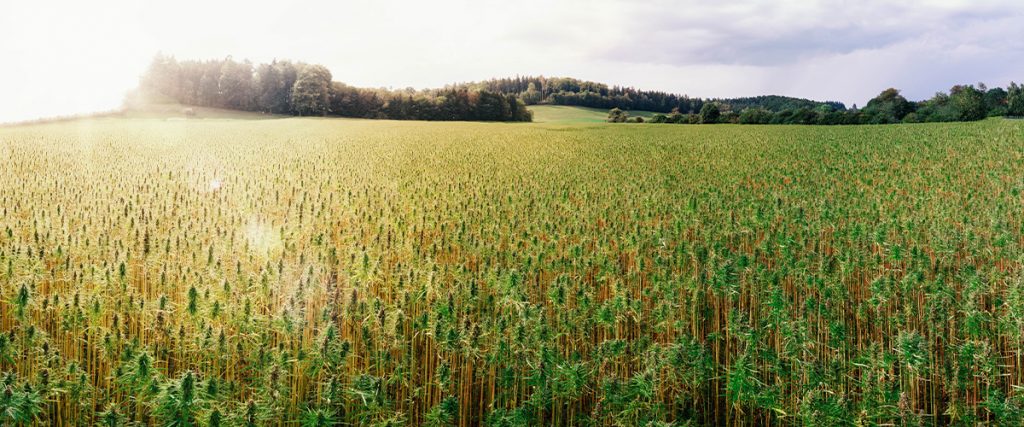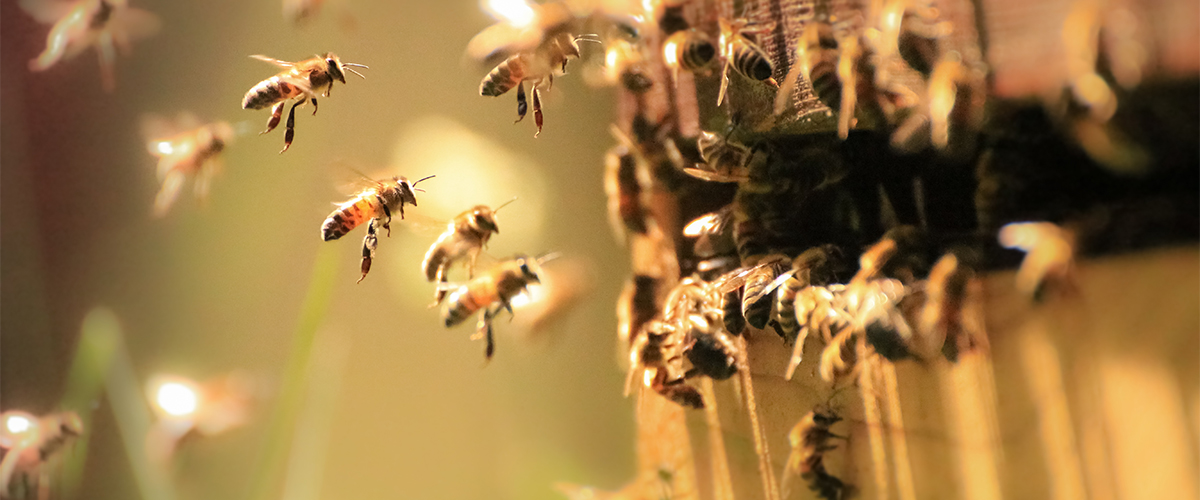A new study investigates how industrial hemp could be a solution for the declining bee population.
Bees play a significant role in the ecosystem, pollinating about one-third of the global food supply. As bee populations continue to fall, concern grows about what implications the loss of pollinators will have on global food production.
A new study from researchers at Colorado State University suggests industrial hemp could be a saving grace for sustaining the bee population. Because bees pollinate hemp, researchers are hopeful bee populations will begin to increase with hemp production.
The bee study took place in Northern Colorado when hemp flowering begins in late July and ends late September. The time period is significant because it takes place at a time when pollinator-friendly crops are scarce in the region.
“Industrial hemp can play an important role in providing sustained nutritional options for bees during the cropping season,” the study’s author wrote.
Hemp does not produce nectar, but hemp’s impact on bees is valuable because the crop produces a large amount of pollen. When other crops are not available, bees can pollinate hemp. Ultimately, pollination is the process that makes food production possible.
Researchers collected more than 2,000 bees for the study and observed 23 different types of bees, predominantly the European honeybee. While the discovery of a wide variety of bees is good news, researchers also warned more pests would become prevalent on hemp crops. Due to this, the team called for an integrated pest management program to protect pollinators.
The study’s authors are researchers from the Department of Soil and Crop Sciences at Colorado State University. The study titled, “Bee diversity and abundance on flowers of industrial hemp” was published in the journal Biomass and Bioenergy in March.
Where Have All the Bees Gone?
According to a report from Ohio State’s Department of Entomology, bee populations in the U.S. are declining at an unprecedented rate.
“Since 2006, commercial beekeepers in the United States have reported honey bee colony loss rates averaging 30 percent each winter — startling, when compared to historical loss rates of 10 to 15 percent,” the report stated.
There are several sources contributing to the bee decline according to Reed Johnson, a researcher in Ohio State’s Department of Entomology
“Urbanization, changes in the way we live and increased use of herbicides, insecticides and pesticides have all contributed to loss of bees,” Johnson said.

Hemp Resurgence in the U.S.
Hemp is a versatile industrial crop that can be used in a variety of ways including paper, textiles, bioplastics and biofuels. With the onset of the “War on Drugs,” hemp production was prohibited in the U.S.
In 2014, hemp production in the U.S. began to increase due to the passing of the U.S. Farm Act. Some important provisions of the bill allow for hemp cultivation along with pilot research programs.
The passage of the 2018 Farm Bill last December federally legalized the commercial production of hemp and hemp products. More than 40 states have passed laws to revive the versatile hemp crop within their borders.
More Cannabis News
Previous findings from researchers at Colorado State has also indicated that hemp can serve as a source of pollen for bees with other sources are unavailable.
Want to read more about the latest scientific research and studies on cannabis, check out our news page. Each week we provide new reports on cannabis news in science, business, and politics.






